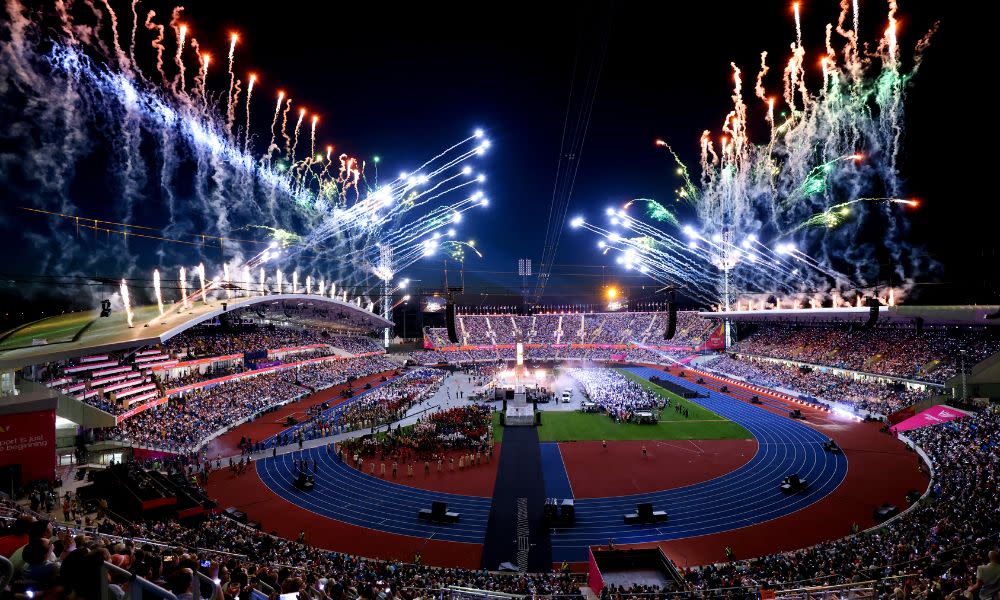Here we are in another Olympic year. With eyes turning to Paris for the Games of the XXXIII Olympiad, now is exactly the right time to explore how major sporting events — and the masses of fans they attract — play a major role in driving tourism within destinations across Europe. With the arrival of the Olympic torch all but imminent, let’s take a closer look at the interplay between sport and tourism and how destinations are deriving value from the phenomenon that is sports tourism all while delighting fans across the sporting spectrum.
Turning Firm Fans into Sports Tourists
 Behind every sport or discipline, there’s an army of devoted supporters willing to follow their team, their side, or their athletes to the end of the Earth — or, at the very least — across the length and breadth of Europe. In a few days’ time, the curtain will rise on Paris 2024, but the last couple of months alone have seen the continent play host to a slew of sporting events, from the Euros and the Tour de France through to Wimbledon, the British Grand Prix, and many, many more. When fans pour into a destination — even if only for a short period of time — they offer a tangible economic boost to the places they visit via spending on accommodation, food, drink, etc. Sports tourism of course isn’t unique to Europe, but as the findings from market research firm Technavio indicate, this subset of the tourism economy is set to grow globally by $559.75 billion from 2023 to 2027, with Europe contributing a whopping 40% to this uptick.
Behind every sport or discipline, there’s an army of devoted supporters willing to follow their team, their side, or their athletes to the end of the Earth — or, at the very least — across the length and breadth of Europe. In a few days’ time, the curtain will rise on Paris 2024, but the last couple of months alone have seen the continent play host to a slew of sporting events, from the Euros and the Tour de France through to Wimbledon, the British Grand Prix, and many, many more. When fans pour into a destination — even if only for a short period of time — they offer a tangible economic boost to the places they visit via spending on accommodation, food, drink, etc. Sports tourism of course isn’t unique to Europe, but as the findings from market research firm Technavio indicate, this subset of the tourism economy is set to grow globally by $559.75 billion from 2023 to 2027, with Europe contributing a whopping 40% to this uptick.
This surge is driven by multiple factors, including the popularity of certain sports within Europe — particularly football — as well as an increase in the number of partnership initiatives offered to entice destinations into serving as host venues for large-scale events. After all, when fans arrive, the power of sports tourism means that destinations can capitalise on their support, offering them unique experiences and memorable opportunities, all while benefiting economically from their presence. As research from the CBI indicates, European sports tourists are especially eager to take part in immersive experiences and actively get to know the destination in which they find themselves, all while enjoying a host of side activities — not all of which, the body explains, are sport-related. This of course ensures that destinations have the broadest possible chance to reap the benefits that these visitors bring to any given place and vice-versa.
A Snapshot of Sports Tourism in Action

Here at Simpleview, we’ve seen the positive impact that sport can have on clients across Europe. From the creation of long-term wealth and jobs to improving local infrastructure — or even just bringing a fun, carnival-like atmosphere to any given area — sport is a force for good within the tourism sector, with destinations large and small able to reap the benefits that these kinds of events can bring to their areas.
For example, as a result of hosting the 2022 Commonwealth Games, Birmingham contributed £1.2 billion to the UK economy. Even two years on, the event — the largest multi-sport event to be held in England since the 2012 Olympic Games — has been hailed for its positive legacy on the area, particularly in terms of its onward economic impact. But for some destinations, a sporting event creates the perfect opportunity to get inbound visitors to explore the wider area. This is certainly the case for the Isle of Man. Using its famous Isle of Man TT Race as a hook, the island’s ‘There’s More to iTT’ campaign was designed to get people to explore all that this unique place has to offer.
For other destinations, sporting events aren’t just a fixture in the calendar, but a way of sharing the local culture and landscape with those who come to an area. A two-day event that combines cycling, kayaking, and running, The Heb: A Race to the Edge, brings competitors and spectators together in the strikingly beautiful Outer Hebrides while the Lincoln Grand Prix cycling event offers both participants and onlookers the chance to experience the city’s atmospheric Cathedral Quarter.

In coastal Europe, the water provides ample opportunities for sport. The Isle of Wight is of course home to two long-standing and prestigious events of the sailing and yachting calendars, Cowes Week and The America's Cup. But recent years have seen the increasing popularity of a much newer competition, SailGP. While it was founded less than a decade ago, this event is already proving to bring true benefits to its host destinations. While the Spanish region of Andalucia served as a racing venue for this high-octane competition back in October 2023, Plymouth played host to the Great Britain Sail Grand Prix in 2021, an event that created an economic impact of £6.9 million for the city.
In 2024, sport is absolutely everywhere. No matter the event or the discipline — from big competitions to small — now is the perfect time for fans and destinations alike to benefit from the joy and fun that sport can bring.



